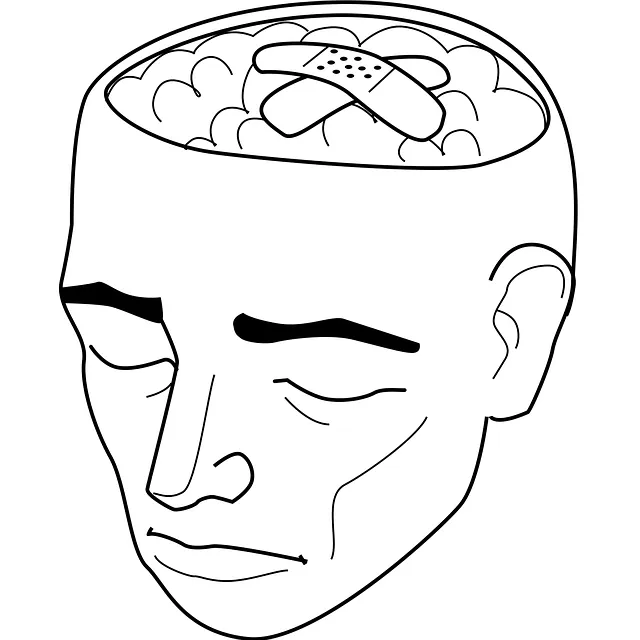Mental illness stigma hinders individuals from seeking help, but Kaiser Permanente Colorado Springs is leading an innovative campaign to reduce this barrier. Through educational programs and community outreach, they foster understanding, empathy, and non-judgmental support, as reflected in positive Kaiser Permanente mental health center reviews Colorado Springs. Their approach, centered around empowering individuals with confidence and Mind Over Matter strategies, transforms lives and inspires more inclusive mental health care practices. Community engagement and education are key to breaking down stigma, encouraging help-seeking behaviors, and improving overall emotional well-being.
Mental illness stigma remains a significant barrier to individuals seeking help. This article explores targeted efforts to reduce this societal burden, focusing on strategies employed by organizations like Kaiser Permanente Colorado Springs, recognized for its innovative approach. We examine initiatives such as community engagement, education, and program evaluation, drawing insights from successful models like the Kaiser Permanente mental health center reviews in Colorado Springs. By understanding the barriers to seeking help, we can foster inclusive communities that support mental wellness.
- Understanding Stigma: Barriers to Seeking Help
- Kaiser Permanente Colorado Springs: A Model for Change
- Community Engagement and Education Strategies
- Measuring Success: Evaluating Stigma Reduction Programs
Understanding Stigma: Barriers to Seeking Help

Stigma surrounding mental illness remains a significant barrier to individuals seeking help and support. Many people struggling with their mental health avoid reaching out due to fear of judgment, discrimination, or loss of privacy. This internalized shame can stem from societal misconceptions and negative stereotypes associated with conditions like depression, anxiety, or psychosis. Unfortunately, such barriers are exacerbated by limited access to quality mental healthcare services, particularly in underserved communities.
In Colorado Springs, for instance, where Kaiser Permanente operates a renowned mental health center, stigma reduction efforts have gained momentum. These initiatives include educational programs aimed at fostering understanding and empathy within the community, as well as training sessions for professionals to enhance their risk management planning for mental health support. By integrating positive thinking strategies and implementing successful community outreach program implementations, these efforts strive to create an environment where individuals feel safe and supported when seeking treatment, mirroring the progressive approach many Kaiser Permanente mental health center reviews highlight.
Kaiser Permanente Colorado Springs: A Model for Change

Kaiser Permanente Colorado Springs stands as a beacon of hope and progress in the fight against mental illness stigma. This renowned mental health center has been at the forefront of innovative strategies to foster understanding, compassion, and acceptance. Through its comprehensive services, Kaiser Permanente offers more than just treatment; it cultivates confidence-boosting and resilience-building environments that empower individuals to embrace their mental well-being.
The center’s approach is rooted in the belief that by providing accessible, non-judgmental spaces, they can help individuals internalize mind over matter principles. Reviews from those who have benefited from this model highlight significant improvements in their mental health journeys. Kaiser Permanente Colorado Springs’ commitment to destigmatizing mental illness serves as a model for other healthcare providers, contributing to a more inclusive and supportive society where individuals feel safe seeking help without fear of rejection or discrimination.
Community Engagement and Education Strategies

In the fight against mental illness stigma, Community Engagement and Education play a pivotal role, as evidenced by initiatives at Kaiser Permanente mental health centers in Colorado Springs. These programs aim to foster understanding and empathy through interactive workshops, public talks, and awareness campaigns. By inviting community members to participate in self-awareness exercises, learn about confidence boosting strategies, and explore Mind Over Matter principles, these centers are not only providing support but also empowering individuals to challenge societal perceptions.
Engagement with local communities helps break down barriers by presenting mental health as a shared human experience rather than a taboo subject. Through educational efforts, residents of Colorado Springs gain valuable insights into the diverse range of mental health conditions, their causes, and available treatment options. This knowledge not only reduces fear and misinformation but also encourages early intervention and improved outcomes for those struggling with mental illness.
Measuring Success: Evaluating Stigma Reduction Programs

Evaluating the success of stigma reduction programs is crucial to understanding their impact on mental health awareness and support systems. At Kaiser Permanente mental health centers, like those in Colorado Springs, various initiatives aim to foster emotional well-being promotion techniques and empathy building strategies. These programs often involve a mix of educational workshops, self-awareness exercises, and peer support groups.
The effectiveness of these efforts can be measured through community surveys, feedback from participants, and reviews by mental health professionals. By assessing changes in attitudes towards mental illness, as well as improvements in help-seeking behaviors and social inclusion, researchers can gauge the success of stigma reduction programs. Positive outcomes may include increased openness about mental health challenges, improved access to care, and enhanced support networks—all crucial components for improving overall emotional well-being.
Stigma reduction is a multifaceted process that requires community engagement, education, and innovative programs. As demonstrated by Kaiser Permanente Colorado Springs’ successful initiatives, challenging mental illness stigma starts with understanding the barriers to seeking help and creating supportive environments. By implementing evidence-based strategies and measuring program effectiveness through dedicated evaluations, communities can foster greater acceptance and support for individuals living with mental health conditions. The positive impact of these efforts is evident in improved patient outcomes and enhanced societal attitudes, as evidenced by Kaiser Permanente mental health center reviews in Colorado Springs.






